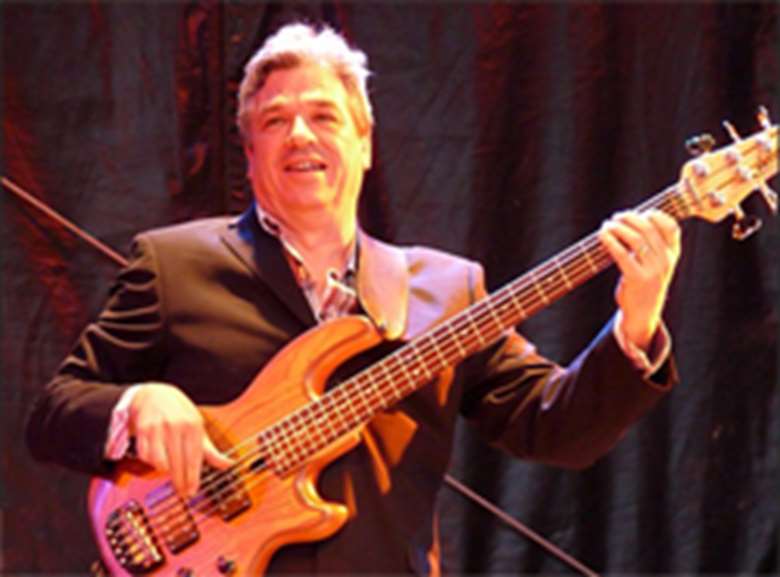Trinity Laban take flight on Pastorius’ wings
Monday, March 3, 2014
After a sparkling performance at the London Jazz Festival, the Trinity Laban Contemporary Jazz Ensemble was back in action at Ronnie’s on Monday, with two imaginative sets of arrangements.

Ronnie’s was full, and the atmosphere at its most carnivalesque, but the players were admirably unfazed. The first set pieces were taken straightahead, but were lovingly phrased, with a craftsmanlike appreciation of the music’s dynamic requirements. It must be most students’ dream to play a Ronnie’s solo, and the arrangements were well adapted to enable many of them to have their moment. Given the numbers, there isn’t space to name every one, but standouts included Rachel Bennet’s sweet, yearning vocals, Rosie Turton’s smooth, muscular trombone, and Milo McKinnon’s athletic trumpet. Earle-Smith was a beacon of enthusiasm, giving his young band just the right amount of space to flourish. Occasionally a little more elasticity in the tempo would have kick-started the swing, but otherwise these were extremely vivid and enjoyable renditions of a well-chosen range of standards.
Pastorius is now universally admired for his revolutionary work on the fretless electric bass, massively expanding its repertoire and range, making it an vivid solo instrument and not just a plunking part of the rhythm section. Too many big bands, especially amateur ones (though these fine young players are all on the cusp of professional careers, of course) offer gale-force unison playing, as stiff and flat as a starched shirt. They make audiences think dark thoughts, about trombones and tubas in particular. The big band, like the bass of 40 years ago, needs more variety and complexity in its melodic lines. Which is why it was such a brainwave to arrange Pastorius for this band – his genius was to bring variety and imagination to what was once plodding and dreary.
British bass legend Cottle has picked up Jaco’s gauntlet and revived his music for a new generation – he’s one of the few contemporary players who can both play Pastorius’ lines with their original flare and daring, while also creating searing new arrangements of the material. Thus the second set was a riot of outrageous, thrusting energy, with fluidity to both the melodic lines and the tempo that made every phrase a surprise and a pleasure to hear. The rhythms were also more layered, with sharper elbows and more elastic responses. The whole sax section was made to work hard, with particular brilliance from Theo Erskine’s tenor and Mike Underwood’s alto, while Dan Marks played some sparky bop piano, and Jessica Dowdeswell sang with melting elegance.
The repertoire was varied, within Pastorius’ output, including his arrangement of Ellington’s ‘Sophisticated Lady’ and Joni Mitchell’s ‘Dry Cleaner from Des Moines’, and a final amendment to the Pastorius rule with Pee Wee Ellis’ ‘The Chicken’, which became Pastorius’ theme song, although not his own composition. Many of the players were the same as the first set, though a combination of superb material and the gentle encouragement of Laurence Cottle, whose solos were, as expected, wonderfully powerful yet sensitive, and Nic France, spinning tropical vibes on the steel pans, raised the performance to masterful. There’s no better tribute to Trinity Laban’s students and teachers than this sublime performance.
– Matthew Wright